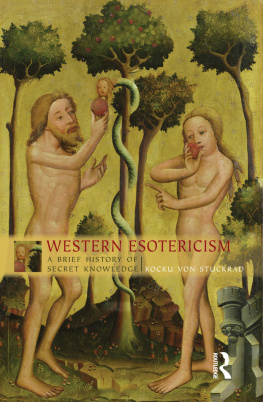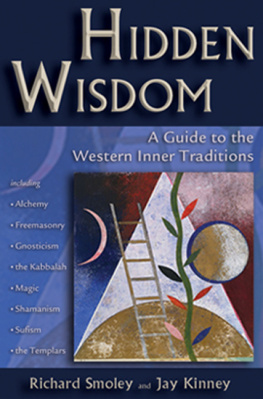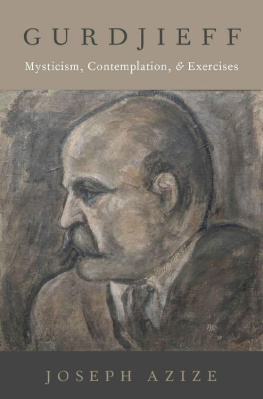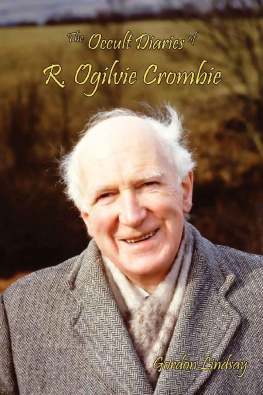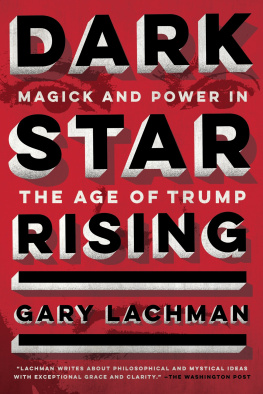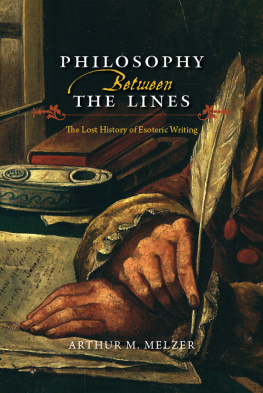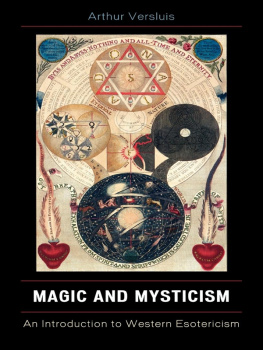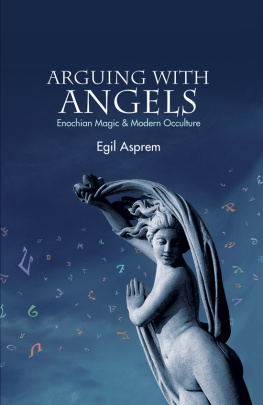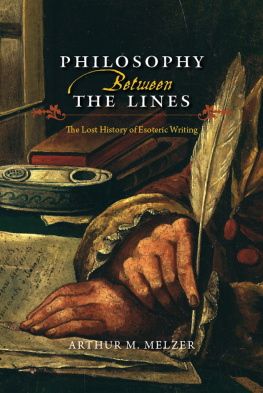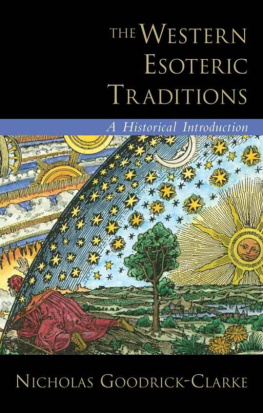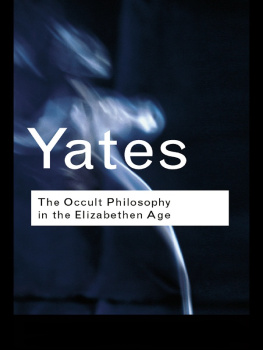Western Esotericism
A Brief History of Secret Knowledge
Esotericism is the search for an absolute but hidden knowledge accessed through mystical vision, the mediation of higher beings, or personal experience. In Western cultural history esoteric approaches to religion have often been in conflict with and suffered at the hands of more established forms of religious belief and practice. Western Esotericism presents a very broad and engaging history of the people and ideas which have shaped occult history from antiquity to today.
Throughout the history of esotericism the dynamic of concealment and revelation has characterized the search for secret knowledge. Pursued both publically and privately, esotericism has come to influence more mainstream religious practice and culture and has significantly shaped our understanding of modernity. Today, esotericism continues to be practised by a range of both established and new religious movements.
Western Esotericism presents the essential guide to one of the most fascinating, provocative, and sustained of religious traditions.
WESTERN ESOTERICISM
Western Esotericism
A Brief History of Secret Knowledge
Kocku von Stuckrad
Translated and with a Foreword by
Nicholas Goodrick-Clarke
First published 2005 by Equinox, an imprint of Acumen
Published 2014 by Routledge
2 Park Square, Milton Park, Abingdon, Oxon OX14 4RN
711 Third Avenue, New York, NY 10017, USA
Routledge is an imprint of the Taylor & Francis Group, an informa business
Verlag C. H. Beck oHG, Mnchen 2003.
Originally published as Was ist Esoterik?
This book is copyright under the Berne Convention.
No reproduction without permission.
All rights reserved. No part of this book may be reprinted or reproduced or utilised in any form or by any electronic, mechanical, or other means, now known or hereafter invented, including photocopying and recording, or in any information storage or retrieval system, without permission in writing from the publishers.
Notices
Practitioners and researchers must always rely on their own experience and knowledge in evaluating and using any information, methods, compounds, or experiments described herein. In using such information or methods they should be mindful of their own safety and the safety of others, including parties for whom they have a professional responsibility.
To the fullest extent of the law, neither the Publisher nor the authors, contributors, or editors, assume any liability for any injury and/or damage to persons or property as a matter of products liability, negligence or otherwise, or from any use or operation of any methods, products, instructions, or ideas contained in the material herein.
ISBN 13: 978-1-84465-747-6 (pbk)
British Library Cataloguing-in-Publication Data
A catalogue record for this book is available from the British Library.
Typeset by Forthcoming Publications Ltd, www.forthcomingpublications.com
Contents
| by Nicholas Goodrick-Clarke |
It gives me pleasure to introduce Kocku von Stuckrads admirable survey of the Western esoteric traditions to the English-speaking world. As his own preface indicates, the time has come for a wider understanding of Western esotericism that transcends the medley of apparently unrelated and often suspect subjects on the shelves of esoteric bookstores. In the period from the 1950s to the early 1970s, such topics were typically grouped as occult, many of them graduating to New Age interest by the early 1980s. But these tags conceal a more interesting and profound story of cultural transmission that involves Western self-understanding and philosophy.
Already between the two World Wars scholars were discovering a rich heritage of Neo-Platonic and Hermetic thought and practice in the West. A few examples will suffice to demonstrate the vigour and breadth of this enterprise, which sourced from the margins of academic and cultural discourse in order to illuminate pivotal linkages in European cultural history. Just as the Latin West had once assimilated Arab science, Jewish mysticism and Greek philosophy in response to geopolitical changes in the medieval and Renaissance periods, so the renewed persecution of the Jews in Central Europe in the 1930s led to the eventual translation of Aby Warburgs famous library from Hamburg to the University of London. A succession of brilliant scholars, German-Jewish and then British, including Edgar Wind, Ernst Cassirer, Frances Yates and D.P. Walker pioneered a history of ideas that bridged the Classical and European worlds, while embracing astrology, alchemy, magic, and their range of impact in the sixteenth and seventeenth centuries.
Other scholars also travelled to academic margins across cultural borders. Just as the nineteenth-century esotericists Helena Blavatsky and George Ivanovitch Gurdjieff sought an ancient wisdom in the East, so scholars of spiritual traditions returned with unexpected riches throwing light on forgotten East-West exchanges and shared traditions. Trained at the Sorbonne, Henry Corbin spent many years in Turkey and Iran assimilating the esoteric imaginaries of Sufi and Persian spirituality and his findings inspired another generation of Arabic scholars, whose work on Islamic mysticism has entered Western academic discourse. As the holder of the Sorbonne chair in mystical currents, Franois Secret unveiled the intricacies of Christian Kabbalah from the fifteenth century onwards, while his successor, Antoine Faivre, developed the parameters of a formalised discipline following his pioneering works on theosophy, illuminism and the philosophy of nature.
As an emergent subject, not unlike science in the seventeenth century, much of this work was also undertaken during the twentieth century in a non-university environment in professional societies and publishing programmes. Following a long tradition of British private scholarship, the Quest Society pioneered comparative religious studies in London during the 1920s, anticipating the notable Eranos Conferences in Switzerland attended by Carl Gustav Jung, Henry Corbin, Mircea Eliade, Gershom Scholem, Karl Kerenyi and D.T. Suzuki in the 1950s. In the 1970s and 1980s a circle of private scholars, including Ellic Howe, James Webb, Robert Gilbert, Leslie Price, Christopher McIntosh and myself, developed studies in the nineteenth-century occult revival, many of which found publishers and ultimately an academic readership. There were fruitful overlaps with other scholars in America, variously devoted to Platonism and Pythagoreanism, the history of the Theosophical Society, American Transcendentalism and German Romanticism. Joscelyn Godwin contributed studies of sixteenth-century panso-phists and musical philosophy, Arthur Versluis wrote on theosophy, and Allison Coudert (notably a Warburg migr) examined the impact of Kabbalah on seventeenth-century philosophy and mathematics. Joost Ritmans Bibliotheca Philosophica Hermetica was established in Amsterdam as a major collection and research centre. Publishers such as John Watkins, Donald Weiser, Jay Kinney, Christopher Bamford, Richard Grossinger, Ehud Sperling and Adam McLean provided an extended platform for scholarship that began to enter academic discourse in Britain, America and continental Europe during the 1990s.
Naming but a handful of individuals who toiled in the vineyard of Western esotericism is intended only to show the longer gestation and scope of these studies thus saved from the cul-de-sac of obscurantism and occultism. Western esotericism is now a dynamic and growing subject at several universities across the world with professorial chairs at Paris, Amsterdam and Exeter, and faculty teaching students in the subject from Australia to Japan, from California to Scandinavia, from Italy to Russia.

